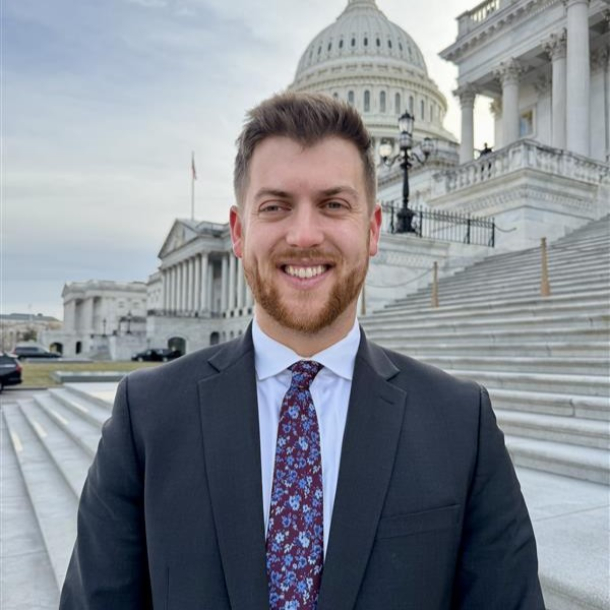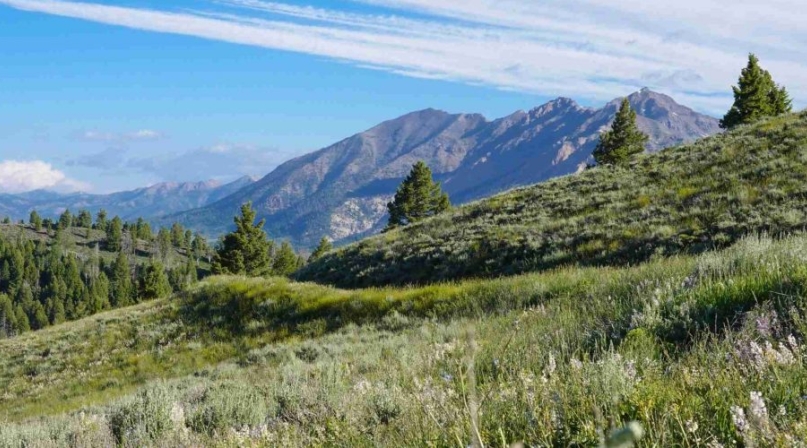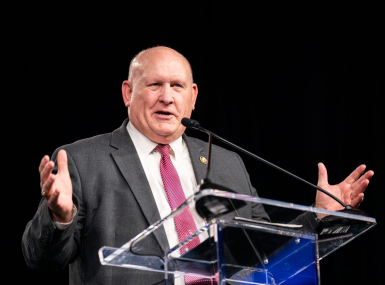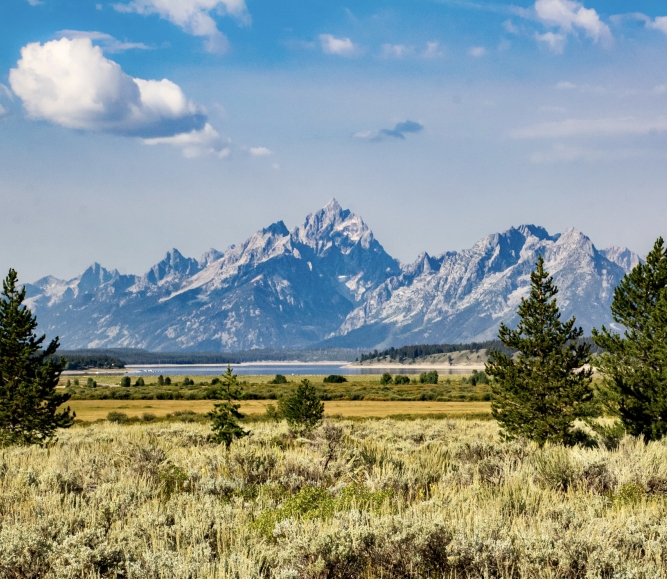Senate lawmakers introduce bipartisan legislation to support public lands counties
Author

Owen Hart

Rachel Yeung
Upcoming Events
Related News

Key Takeaways
On August 4, U.S. Sens. Catherine Cortez Masto (D-Nev.), Steve Daines (R-Mont.) and Adam Schiff (D-Calif.) introduced the More Opportunities for Rural Economies (MORE) Grants Package. The bipartisan MORE Grants Package, including both the MORE USDA Grants Act (S. 2618) and the MORE DOT Grants Act (S. 2619), aims to make rural communities in public lands counties more competitive for key federal funding.
About the MORE Grants Package
NACo endorses the MORE Grants Package, which would level the playing field for public lands counties in accessing federal rural development and transportation resources. The legislative package offers practical, cost-neutral updates to existing U.S. Department of Agriculture (USDA) and U.S. Department of Transportation (DOT) programs to reduce structural barriers that often leave rural communities behind.
A key feature of the legislation is the creation of a new statutory definition for High Density Public Lands Counties (HDPLCs) – counties with fewer than 100,000 residents and over 50 percent of their land managed by the federal government. These counties are vital partners in stewarding America’s public lands but often struggle to access federal programs due to limited taxable land, staffing shortages and burdensome application processes.
The MORE USDA Grants Act (S. 2618), also cosponsored by Sens. Mike Crapo (R-Idaho) and Jim Risch (R-Idaho), would expand access to USDA Rural Development funding and technical assistance for HDPLCs to support projects in health care, housing, infrastructure and economic development.
The MORE DOT Grants Act (S. 2619) would address barriers impacting the ability of HDPLCs to access federal transportation funding by simplifying the application and management processes for projects such as roads, bridges, airports, rail, transit and safety.
Key provisions include:
- Reducing local matching fund requirements by 50 percent for USDA Rural Development and DOT discretionary programs
- Expanding technical assistance to county, municipal and tribal governments within HDPLCs throughout the USDA and DOT grant application process
- Prioritizing local governments that have not previously received grant funding under covered programs
Impact on counties
HDPLCs face unique fiscal and operational challenges which limit their ability to fund core services like public safety, infrastructure maintenance and emergency response. Additionally, rising housing costs, staffing shortages and administrative burdens associated with federal programs further strain local capacity, particularly when applying for competitive grants that require local matching funds.
While the federal government has long recognized the challenges public lands counties face, revenue sharing payments have failed to keep up with the increasing costs facing county governments. From 2017 to 2022, the cost of delivering services to residents in counties receiving Payments in Lieu of Taxes (PILT) grew by 25 percent, while PILT payments only rose 18 percent. As the funding gap widens, many public lands counties will face rising barriers to entry to the very programs designed to support rural communities.
By lowering barriers and expanding access, the MORE Grants Package would help HDPLCs invest in long-term infrastructure, economic growth and community resilience.
“Counties with large shares of federally managed land face real, structural disadvantages when it comes to accessing federal funding and delivering essential services,” said NACo Executive Director Matthew Chase. “The MORE Grants Act Package levels the playing field by reducing local match requirements and expanding technical assistance, so counties can invest in infrastructure, broadband, small businesses, and other critical needs. We commend Senators Cortez Masto and Daines for their bipartisan leadership and urge Congress to advance this commonsense legislation without delay.”
Related News

Congress reintroduces bipartisan Railway Safety Act of 2026
This winter, lawmakers in the House and Senate reintroduced the bipartisan Railway Safety Act of 2026 (S. 3903, H.R. 7748) , building on prior efforts to strengthen federal rail safety standards following the high-profile 2023 Norfolk Southern derailment in Columbiana County, Ohio.

House Agriculture Committee chairman targets Easter farm bill passage
House Agriculture Chairman G.T. Thompson (R-Pa.): “Let’s face it — the 2018 policy was really great for 2018, but it’s no match for the challenges of 2026.”
Next step on PILT requires more outreach
Facing headwinds on making PILT funding permanent, county veteran Rep. Celeste Maloy (R-Utah) told county officials to reach out to any member of Congress who will listen.
Featured Initiative
National Center for Public Lands Counties
The NACo Center for Public Lands Counties is dedicated to advancing the policy and practice study of America’s public lands counties. Our mission is to deepen the understanding and address the unique challenges faced by counties containing federal lands through strategic research and collaboration.
